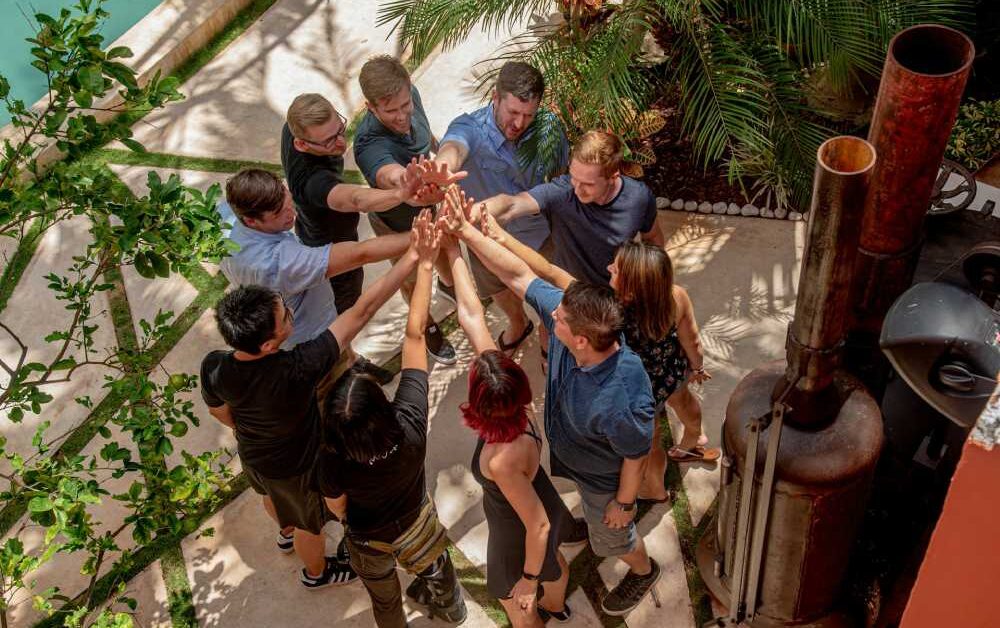The path to recovery often requires more than individual resolve; it necessitates the warmth and guidance of others who traverse similar terrains. This alignment with a support network, such as those participating in AA Meetings Charlotte NC, can introduce structure and camaraderie into the tumultuous journey of overcoming addiction. Within these circles of trust, members can freely share their experiences and challenges in a non-judgmental atmosphere that fosters collective growth and individual fortitude.
Moreover, in the context of addiction recovery, it is not merely about the cessation of substance use but the reconstruction of an individual’s life. The presence of a community, such as the ones found in support groups, supplements the conventional treatment methodologies with emotional first aid, effectively combating the isolation so commonly experienced during addiction.
The curative nature of this shared space manifests not in eradicating one’s past but in the compassionate understanding and sincere motivation toward mutual healing. It emphasizes the profound human truth that we are fundamentally social beings who thrive on connection and collaborative efforts for recovery.
Historical Perspective of Support Groups
From humble beginnings, the concept of support groups as a beacon for those battling addiction has transformed into a global paradigm of connection and mutual aid. Recognizing the critical need for empathetic surroundings, the first rudimentary formations of these groups were founded on the principles of shared experience and collective determination.
With every story shared and every hand extended in solace and solidarity, the blueprint for modern recovery support networks was etched. Today’s support groups owe their success to these foundational years, where the earnest quest to aid those in the throes of addiction set the stage for the progressive movement we recognize today.
This historical tapestry is woven with tales of personal struggles and societal resistance, setting precedents for the acceptance and understanding that current recovery communities continually strive to cultivate.
As society’s grasp on the complexities of addiction has grown more nuanced, so too have the methods and scales of support networks, expanding their reach and refining their approaches to respond to an ever-burgeoning need for meaningful and effective support systems in the realm of addiction recovery.
The Psychology Behind Group Support
The success of support networks in fostering recovery from addiction lies heavily in the complex psychological mechanisms at play. Within the collective embrace of a group, individual narratives of hardship are shared and alleviated, creating a tapestry of common experience that reinforces one’s not alone in their struggle.
Recent research highlighted by Science Daily elucidates the effectiveness of group therapy, suggesting that individuals engaged in mutual support frameworks are more likely to maintain sobriety.
Within the microcosm of a support group, members can engage in reflective storytelling, a fundamental human activity geared towards making sense of the world and oneself. By giving and receiving feedback, individuals weave their narratives into a larger discourse of recovery, allowing them to reconstruct identities not defined by substance dependence but rather by the resilience and solidarity in their community.
Peer validation – often the cornerstone of renewed self-esteem – propels the individual towards recovery, hand-in-hand with others who echo their resolve.
Types of Support Networks Available
The landscape of available support networks is as diverse as the individuals who seek them. From peer-led groups like AA, which offer a sense of shared identity and common ground, to one-on-one professional counseling sessions that provide personalized strategies for coping, the spectrum of support available is broad and flexible.
With its tradition-laden approach and structured meeting format, the AA model remains a staple in the recovery community, offering a sense of solidarity through its globally recognized program.
Additionally, the advent of technology has spurred the growth of virtual forums and online communities, which offer support beyond the confines of geography and grant flexible access to those who may not be able or willing to attend in-person meetings.
This proliferation of digital offerings has democratized the availability of support and introduced a contemporary dimension to the communal healing process, allowing for a continuity of care and camaraderie unmatched by traditional means.
Support Networks and Their Role in Relapse Prevention
Within the support group’s sanctum, relapse prevention strategies are not just discussed; they are lived, refined, and passed on as invaluable survival skills. The emphasis on regular participation and the cultivation of a shared language of recovery create a bulwark against the ever-present danger of relapse.
The consistent engagement with support networks is both a reminder of past hardships and a celebration of the ongoing commitment to sobriety. Understanding that addiction is a relapsing condition, the support network becomes the nexus of prevention, providing members with accessible resources and a trusted environment to express vulnerabilities and seek guidance.


